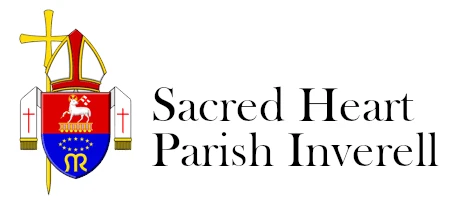3rd Sunday of Advent / Gaudete Sunday (Year A) - 11 December
11th December 2022

3rd Sunday of Advent / Gaudete Sunday (Year A) - 11 December
“Joy, with peace, is the sister of charity. Serve the Lord with laughter.” - St Padre Pio
“Rejoice in the Lord always. I shall say it again: Rejoice! Indeed, the Lord is near.”
Gaudete is a Latin word that means “You shall rejoice!” This name is taken from the entrance antiphon for Sunday’s Mass, which is also echoed in the second reading from the letter of St Paul’s letter to the Philippians. It is a reminder that the Advent season is a season of Joy because our salvation is already at hand.
A reflection on today's gospel by the Venerable Archbishop Fulton J Sheen:
"‘Is it Thy coming that was foretold, or are we yet waiting for some other?’ The very way John put the question indicated that he had faith both in the great Messianic promise and in Him Whom he was questioning. When the question was brought to Him, Our Lord did not answer it with a promise that John would be released from prison, or that He Himself would destroy his enemies. He answered only by pointing to His own work of healing, comforting, and teaching.
"In effect, Christ was giving a twofold answer to John’s disciples, pointing to both His works and His word, His miracles and His teachings. His miracles would not just be things to wonder at; rather they would be signs of a Divine Kingdom of righteousness and mercy; and the power by which He worked them would be a power outside nature, which could control nature. His teaching, in particular, would be another proof of His Divinity: the poor would have the Gospel preached to them.
"This was especially significant, because poverty is only another word for human imperfection and weakness. The strong in body and the keen in intellect and those who possess the bounties of earth receive their reward in this world; but the poor and the weak often hunger and suffer. Christ was saying that in the Kingdom of Heaven there would be a gospel for the poor. God has another world in which to redress the inequalities of this one. While the rich man is told that if he wants to go to heaven he must part with his riches for Christ’s sake, the poor man is told that his weariness and suffering, toil and disappointment, united with the Cross, will bring their own inner peace and reward.
"When the messengers had left, Our Lord began to praise John. John had borne witness to Him. He would now bear witness to John. He answered those who might have been judging John by a message that was sent in an hour of trial. He contrasted the multitude who hung upon the words of the messengers with John himself—the fickleness of the crowd with the stability of the prophet. It was not John that was weak; it was their own hearts. It was not doubt that had made John send the enquiry, nor was it a fear of bodily consequences. Using three figures of speech, Our Lord rose to John’s defence. The first figure was the reed that used to wave in the breeze beside the strong rapid stream of the Jordan, where they had heard John preach; the second figure was the soft garments of those who lived in the house of Herod; the third figure was a sign from heaven and a reference to all the men who have gone through the portals of the flesh in human birth.
"Three times Our Blessed Lord asked, 'What was it you went out to see?' This was their error; professing a desire to know the will of God, they had really been bent on sights and spectacles, on enjoying the wonders and popularity of the messenger. They went out just to see someone, not to hear someone; to satisfy the concupiscence of their eyes, but not to imitate the temperance and self-denial of the Baptist. Our Lord was telling the mob that St. John did not ask his question from prison simply because he was a reed shaken by the wind of public opinion, or because he was one who cared for his bodily well-being, as did the courtiers in the house of Herod. John was no frivolous reed shaken by every breath of popular applause. He delivered his rebukes with fearlessness; he was not only severe on others, he was even more severe on himself. He might have dwelt in the houses of kings, and yet he made the desert his home. In his relation to God, he was a prophet, and more than a prophet - the precursor and forerunner of the Messiah and the Son of God. Greatness is of two kinds: the earthly and the heavenly. If John’s greatness had been of the earth, he would have lived in palaces, his garments would have been gaudy, and his opinions would probably have been variable like a reed, blown toward one popular philosophy one day and another the next. But his greatness was of the Divine order, and his superiority was not just in his person, but in his unchanging work and mission, namely, to announce the Lamb of God." (Life of Christ)
An Advent Prayer
God of hope, who brought love into this world, be the love that dwells between us. God of hope, who brought peace into this world, be the peace that dwells between us. God of hope, who brought joy into this world, be the joy that dwells between us. God of hope, the rock we stand upon, be the centre, the focus of our lives always and particularly this Advent time. Through Him who is our hope, our joy, our love, our peace in union with the Holy Spirit, one God forever. Amen. 💖🙏💐


